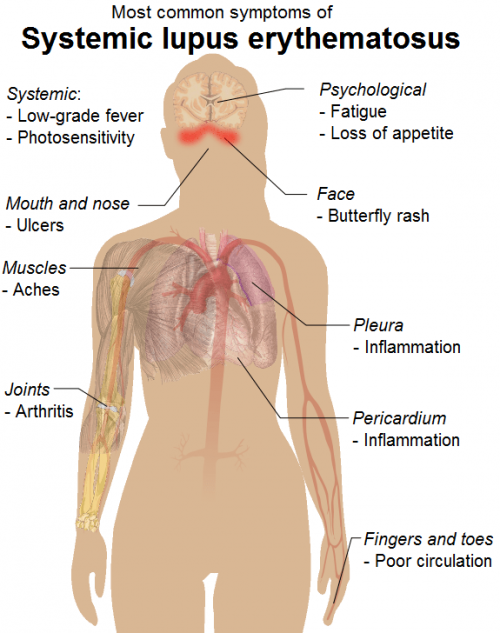
October brings about Lupus Awareness month and this article is dedicated to raising awareness of Lupus. But first of all, some of you might not be aware of what Lupus is and how it can affect you and your loved ones.
What is Lupus?
Lupus is a systemic autoimmune disease. Now when explaining exactly what Lupus is and how the disease works we will be getting a little technical. Lupus is a disease in which your immune system attacks your own body. Your immune system is made up of white blood cells which defend your body against foreign invaders. Normally when foreign invaders such as viruses and bacteria invade your body, some of your white blood cells identify them as foreign because they contain substances called antigens.
This recognition causes some of your white blood cells to make chemical markers called antibodies. These antibodies attach to the antigens, marking the foreign invaders as targets for your immune system to destroy them. In an autoimmune disease such as Lupus, your white blood cells mistakenly make antibodies to mark some of your body cells, and circulate chemicals for destruction. When the antibodies attach to your normal cells, your white blood cells begin to attack them as if they were foreign antigens. Over time this autoimmune response causes inflammation in parts of your body. Wherever this attack is happening, inflammation makes the blood vessels in the affected area expand and leak fluid, causing redness and swelling.
The Symptoms of Lupus
The symptoms of Lupus happen as your immune system begins to attack different areas of your body. You may develop a butterfly-shaped skin rash on your cheeks and nose. You may also develop small sores or ulcers inside your nose or mouth. You may develop arthritis, where your joints become inflamed and swollen. When your fingers are cold, they may even turn blue or white, this is called Raynaud’s Phenomenon. With Lupus, you may also suffer from pains during deep breathing caused by Pleurisy.This is a condition in which the outer lining of your lungs become inflamed.
Your white blood cells may create antibodies that attach to bits of your DNA from worn-out cells. The attached pairs called an Immune Complex can lodge in your kidneys causing inflammation, this disorder is called Lupus Nephritis. Flare-ups of any of these symptoms, even those not relating to your skin, may be caused by an initial reaction to sunlight called photosensitivity.
Other common Lupus symptoms include:
- Extreme fatigue
- Headaches
- Fever
- Anemia
- Swelling of the legs, feet, hands, or skin around your eyes
- Muscle pain and weakness
- Hair loss
Treatments
Lupus is sometimes known as the great imitator because its many symptoms are found in other health problems.
Currently, there is no cure for Lupus however there are ways to prevent or reduce flare-ups:
- Avoid direct sunlight
- Wearing suncream
- Using a high protection factor of suncream
Although there is no cure for Lupus there are certain medications you can take that can help with the symptoms. Lupus is mostly found in women, it is 9x more common in women than in men. The age that it tends to affect people is from 15-45. Also sometimes Lupus can be a big part of your life and then go away. Here is a list of some of the medications/treatments that your doctor may recommend:
- Anti inflammatory drugs
- Non-steroidal anti-inflammatory drugs
- Anti malarial drugs
- Immune system suppressing drugs
- Physical therapy
Age Care Bathrooms
Arthritis brought on by Lupus can be very debilitating and can cause a lot of pain and discomfort. We have experience in working with many clients with Lupus and other medical conditions which restrict mobility and make everyday tasks difficult to complete. If you or somebody you know is experiencing difficulties with their mobility due to the complications of Lupus, speak to us today to discuss the changes we can make in your home, to make using the bathroom a little easier. Visit our contact page.




